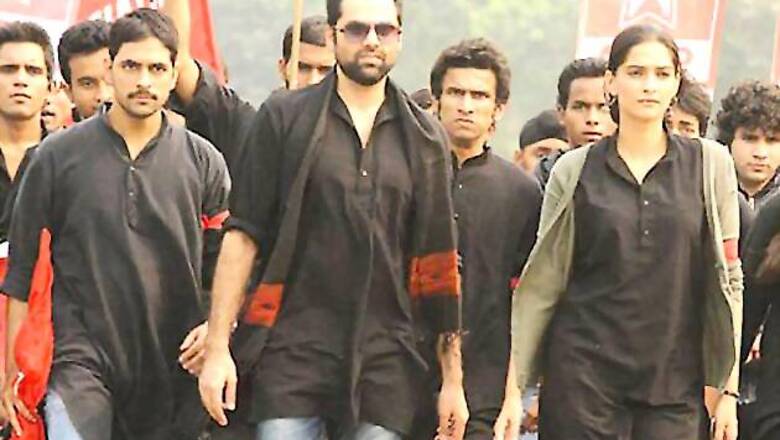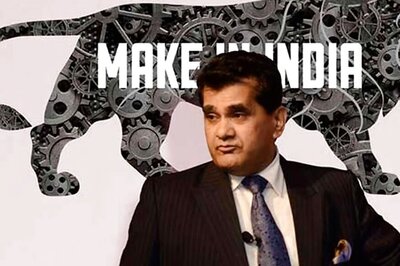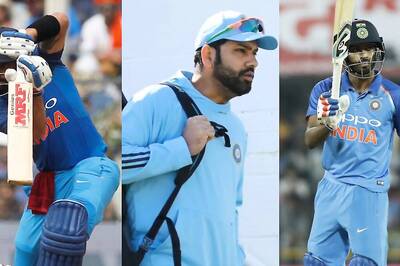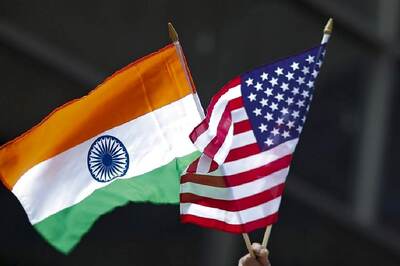
views
When Himanshu Sharma wrote the script for 'Raanjhanaa' little did he know that the film's 'not-so-real portrayal' of Jawaharlal Nehru University (JNU), as JNUites term it, would leave many miffed and offended. While there is nothing wrong in taking cinematic liberties, it is a fact that the representation of JNU hasn't gone down well with those who've spent years in the esteemed university, understandably so.
While many have slammed the film for its wrong depiction of JNUites, actress Swara Bhaskar aka Bindiya, who has done her masters in Sociology from JNU, says the viewers should understand that the film is a work of fiction.
"The way JNUites have been portrayed is imaginary. The film has no connection with the reality. The way JNUites have been shown in the film is how the scriptwriter thought they must be. It is about what progressive politics must be like. So yes, it is very fictional," says Swara Bhaskar.
But Swara, who wowed fans with her acting prowess in 'Raanjhanaa', also believes the depiction isn't disparaging. "I feel, as long as the portrayal isn't derogatory, it is fine. The film doesn't have a condescending attitude toward JNU students. The film shows a lot of warmth. Haven't we had films revolving around Allahabad University, Delhi University with not-so-real depictions? People have to understand the film is imaginary," explains Swara.
Read on to know why the film's scriptwriter owes a film to JNU.
Abhay Deol doesn't represent JNU leader: Himanshu Sharma, the scriptwriter of 'Raanjhanaa' clarifies the reason for using JNU as the backdrop for the film. "The story of 'Raanjhanaa' isn't about JNU; it has just been used as a backdrop in the film. We could not have placed Abhay Deol elsewhere because JNU is where radical politics exist and the way it influences student politics, no other university could have done justice to the role. So to create a believable space, we had to opt for JNU," he elucidates.
Himanshu adds, "As far as the sequence wherein Abhay Deol clasps and twists Sonam Kapoor's wrist goes, it should not be seen as the representation of a JNU leader. It is just about the character which Abhay plays. He comes across as a witty individual with a gift of gab, but he isn't representing a JNU leader. In the film, we are just sticking to the character. Abhay is a person who has to behave in a certain way and there are certain things that need to be said in a certain manner."
Himanshu doesn't deny the fact that the film must have rubbed many JNUites the wrong way. "I agree, people who have studied in JNU, would not have liked its depiction. Anybody who isn't aware of JNU should not touch it. But I think, had we got enough screen time, we would have shown JNU in a deeper way. The next time I use JNU, I will do it differently. I owe a film to JNU," he says.
Reactions from those who have studied in JNU:
What was the usage of kurta/jhola all about?: "It is clear that writer hasn't done enough research. Their idea of JNU is so shallow. When I watched the film, I felt the portrayal has been made on the basis of what friends of friends in JNU must have said. They should have spent at least 2-3 weeks at JNU to understand it. In fact, even 2-3 weeks couldn't have helped them much. The sequence wherein they discuss the factors that made Dhanush a thief was so trivial and offensive. Yes, I agree, we discuss just about everything in JNU, but its treatment in the film is juvenile," says Ektaa Malik, former student of JNU.
She adds, "What was that kurta jhola portrayal all about? We wear it because it is symbolic of JNU. JNU is a democratic campus wherein people from varied caste, creed and religious backgrounds study. We all blend under one umbrella. Instead of focusing on that, the film comes across as a caricature of JNU."
JNU is not about 'akkad': "JNU caricature ke roop mei dikhaya gaya hai. Bahut superficial hai. JNU is symbolic of Left-wing politics, which carries a lot of significance. The 'Chor kaise bana' sequence was so trivial. We discuss several larger issues in JNU. It was JNU which initiated demonstrations against the Delhi rape case. We have participated in protests, movements and stood for the rights of farmers and women. The depiction of mainstream politics is so filmi," says Pritpal Randhawa, who is currently working as a research fellow in JNU.
And the sequence wherein Abhay is seen resorting to unfair means while writing an examination isn't real either. "Going by the history of the student presidents, they have always been excellent in academics. Cheating har jagah hoti hai, par JNU is a different university. Yeh film dikhati hai ki JNU students kala kurta pehenke sirf nukkad natak karne ke liye ready hotein hain. The body language of Abhay Deol is also problematic. JNU stands for simplicity (students who study in JNU belong to different backgrounds, hence the simplicity). This is completely different from the usage of the regular - kala kurta, fatti jeans simplicity," Pritpal adds.
For Pritpal Abhay boozing and manhandling Sonam wasn't a tad convincing. "Students do get involved in political campaign. But they discuss things in a different way with people. He is shown in a patriarchal and masochistic way. It was just so DU. They could have discussed caste, creed and religion which could have been included via good dialogues and discussions. But the film just missed out on it," he concludes.
Abhaya Deol has a half baked character: "It is just so superficial. The film shows it has been done by someone who has no information on JNU. Gussa aaney wali baat hai. The role of Abhaya is half-baked. He is shown as a leftist in the film, in whose life religion becomes a formidable barrier. The makers should have taken the responsibility to show JNU in the right light. The second half was so haywire," says Prabhat Raghunandan, former student of JNU.
Why JNU and not Delhi University?: Manish Shrivastava also reiterates the point of using JNU's image, which everybody swears by, in a wrong way. "'Raanjhanaa' is completely off the mark in terms of portrayal of JNUites. The film couldn't even succeed in representing the stereotypes of JNU. But if I look at it as a commercial film which is looking for a plot to take characters forward, it is fine. But what was the need to specify JNU in the film? It could have been any other university even Delhi University!" he rues.



















Comments
0 comment